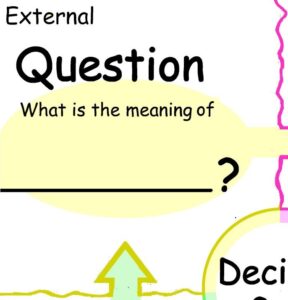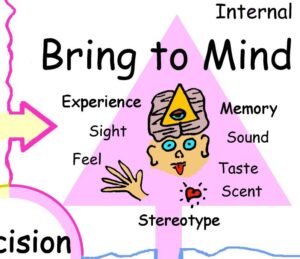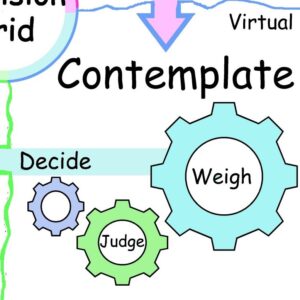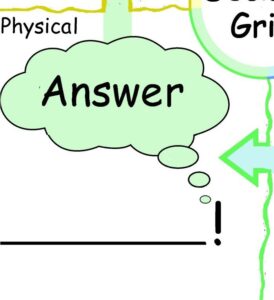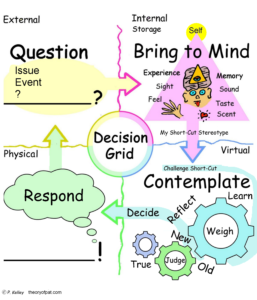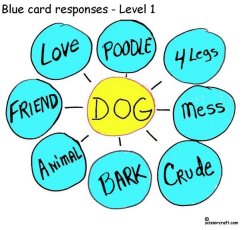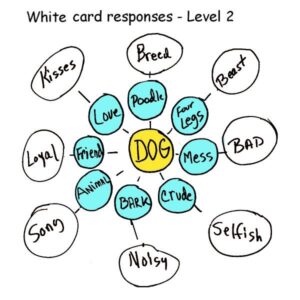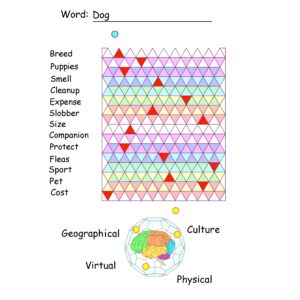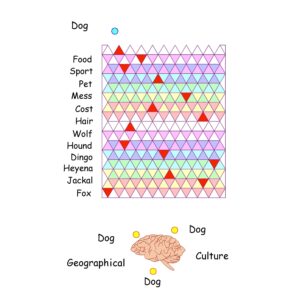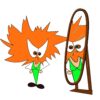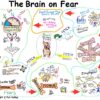What is the Meaning of the Word Dog?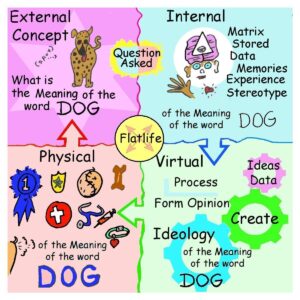
Decision Grid Part I: Introduction
This is a game we devised for a Toastmaster meeting a few years ago as an in-house visual demonstration of how thoughts and ideas process within our minds.
The Decision Grid follows the flow of decision-making from the moment a question or situation arises to the instant a solution, an answer or hypothesis seems to magically pop into our minds.
How it works:
The Decision Grid process helps to visualize how the mind determines meanings behind words and actions which convey thought and idea from one person to another.
Questions trigger the brain into bringing in and evaluating new ideas and concepts against current memories, ideas and concepts.
How it works:
First a question, situation, event comes to focus.
The brain thinks about the idea, brings up memories of available information, what is already known, processes any new or changed information, makes a decision, provides a decision, physical response or action.
|
|
External:What is the meaning of “_________________________?”1. An individual hears, reads, sees or senses the question. |
|
|
Internal:2. The mind conjures up ideas, memories and experiences concerning all existing knowledge of the question in order to formulate an answer. |
|
|
Virtual:3. The mind sorts, shuffles, weighs and ultimately decides to formulate a response. |
|
|
Physical:4. The individual expresses an answer in the form of speech, writing or other form of physical manifestation. |
Decision Grid 2: The Question
A Class Exercise
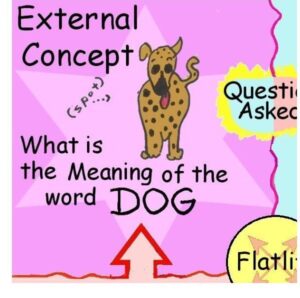
What is the Meaning of the Word _____DOG_____?
Due to the variety of answers you may receive, this exercise should work best with small groups of 8 to 20 individuals.
A larger classroom could be divided into groups.
Provide each individual two differently colored index 3 x 5 cards upon which to write their answers.
Inform the group that once a question is asked, they have only 5 seconds to jot one to three words that come to mind upon hearing the question.
When 5 seconds are up, the players are to turn their cards face down and slide it to the person seated to their right, left or across, whichever direction is preferred.
First Card:
The first card draws solely upon an individuals memory alone to provide an answer to the question.
Whatever the individual decides as the best answer depends upon their personal experiences, memories, and currently formed stereotypical paradigms the individual may have developed through the course of their lives, or what we prefer like to call pre-conceived conceptions.
We used the blue card for the first question in this test case.
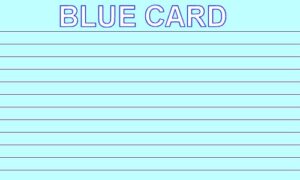 |
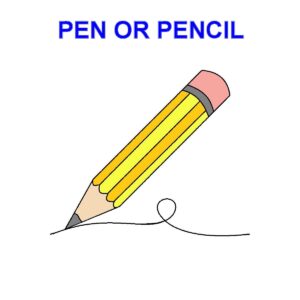 |
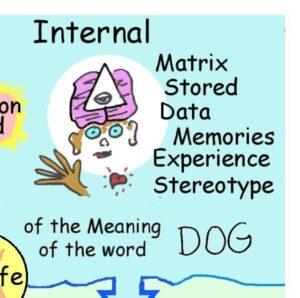
What is the meaning of the word “_________DOG______________?”
At the first level, the question appeals to instantaneous stereotype. The brain goes to what is already known about the subject of the question.
The brain triggers to recall current, existing memories, ideas and concepts already learned and established.
Of the blue cards filled out by the group these responses were recorded:
- Love,
- Poodle,
- 4 legs,
- Friend,
- Mess,
- Animal,
- Bark,
- Crude
So, what we know about DOG thus far is it is a more difficult thing to define when a committee gets involved.
Further clarification seems necessary to get a good idea of a generic dog to the point where 8 people may agree in general.
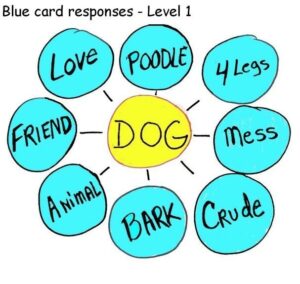
Once each person fills out their blue card, they cards are turned face down and handed to the person seated next to them.
Second Step, White Cards
Instuctions:
The second step requires each individual, upon the count of “go” to flip their blue cards over, silently read the words the next door neighbor wrote, take 5 seconds to process and then jot down, on their white cards, a word or two that come to mind.
Gather all cards and return stack of cards to the meeting officer.
Each Player Respond to What the Blue Card Says
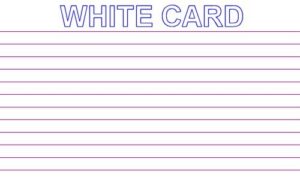 |
Among the Answers:
|
These new words compel the players brain to consider potentially new data and compare with their current dearly held paradigms to weigh, process and eventually incorporate or reject to form an new opinion or an ideology concerning the meaning of the word DOG in so far as the limited parameters of this small test group of eight individuals.
New thoughts and ideas may include descriptions, value judgements, emotional attributes, as Chaos insists, with chaos, the sky is the only limit to imagination.
Each individual first envisions or internally conjures from within their own memories, thoughts and ideas of their overall understanding of the word “Dog”.
Then, on to Virtual Processing to contemplate all information gathered thus far.
We each sort through the collection of thoughts to determine a ‘best‘ description of what the word (question) means to us personally.
Knowledge, memories, ideas, (aka data), gets weighed, judged, evaluated sifted, sorted, kept or discarded through the virtual process of thought. The goal is to decide upon one, “best,” most descriptive word to answer the question, all within a five second time span.
Decision Time
Tick, tick, tick. Time to think. 5 seconds. Tick tock, tick tock. The speed of human thought is faster than can be measured with current technology. On the other hand, five seconds to the human brain can seem excruciatingly short when placed under the pressure of a stop watch.
The Star Trek android “Data” once said “1.5 nano-seconds is a lifetime to a computer.” Data’s data is confined to the limits of programs designed by humans who are confined to physical limitations.
5 – 4 – 3 – 2 – 1 …Decision Time
Brains think constantly, non-stop whether we are aware or not. Left foot, right foot, breathe, chew, pick up pencil, answer phone, remember groceries, call Mom…constantly thinking so fast it is impossible to realize the process as it happens.
However, ask someone a pointed question with 5 seconds to answer, and everything in the cranium seems to grind to a halt. Suddenly put on the spot the mind scrambles through a Plinko-maze filter to sort the sheer volume of data suddenly sent to the front line.
Hint: This is where Table Topics practice comes in real handy.
Memories That Can affect Emotions
- the toothy nip from a dog you got as a kid
- the tattoo of Lassie on favorite uncle’s shoulder
- puppy-theme curtains at a favorite restaurant
- Puppy paws in cement to walk upon
- Underdog Cartoon and dog movies
- stories
- songs
- something inappropriate
- …everything coming at you all at once.
The skill of recall improves with practice. Use Word-A-Day calendars to exercise pronunciation and definition. Always investigate further.
Responses Levels 1 & 2
Plinko Brain In Action
We asked a small group of 8 Toastmasters to jot down their initial 2 to 3 word impression of “what is the meaning of the word
___________DOG________________?
First level answers originate from uniquely learned memory and already formed ideas and stereotypes based upon stored knowledge and information.
Every individual forms uniquely personal combinations of genetic DNA, intelligence capabilities, educational opportunities and culturalized personalities.
Every person, from conception to old age, grows, learns and matures differently within their own sphere of society or culture and holds unique observations and reactions all affected by the senses, taste, touch, audio, sight, intuit and smell.
If we think about all the possibile answers to any question, it is a wonder people agree on anything.
The responses to card questions now cumulate sufficient data to render a guess as to what is a DOG.
In order to get a mental handle on what causes this chaos we call on Plinko Brain.
What is Plinko Brain?
The game Plinko was invented by the popular feature on the Television game “The Price is Right.” The contestant inserts a game puck arbitrarily into a maze of bumper pads which bounce the puck at random to and fro as it travels through the maze. Ultimately the puck falls into one category and the contestant wins a monetary prize.
We equivocate Plinko to the random manner in which individuals develop and learn.
Each person uniquely experiences words, sounds, taste, smell, sight and intuit or gut feelings.
Our mental Plinko pucks travel though the synaptic connections in our uniquely developing brains to formulate unique observations which seem lucid enough to allow us to communicate with others.
In addition to the words provided by the blue and white cards, our brains will conjure more selective criteria from which to choose. Because we all share some connections there will be responses in common.
| Person #1 | Person #2 |
|---|---|
|
|
Add in a dollop of cultural, traditional ideological and otherwise differences in life experiences:
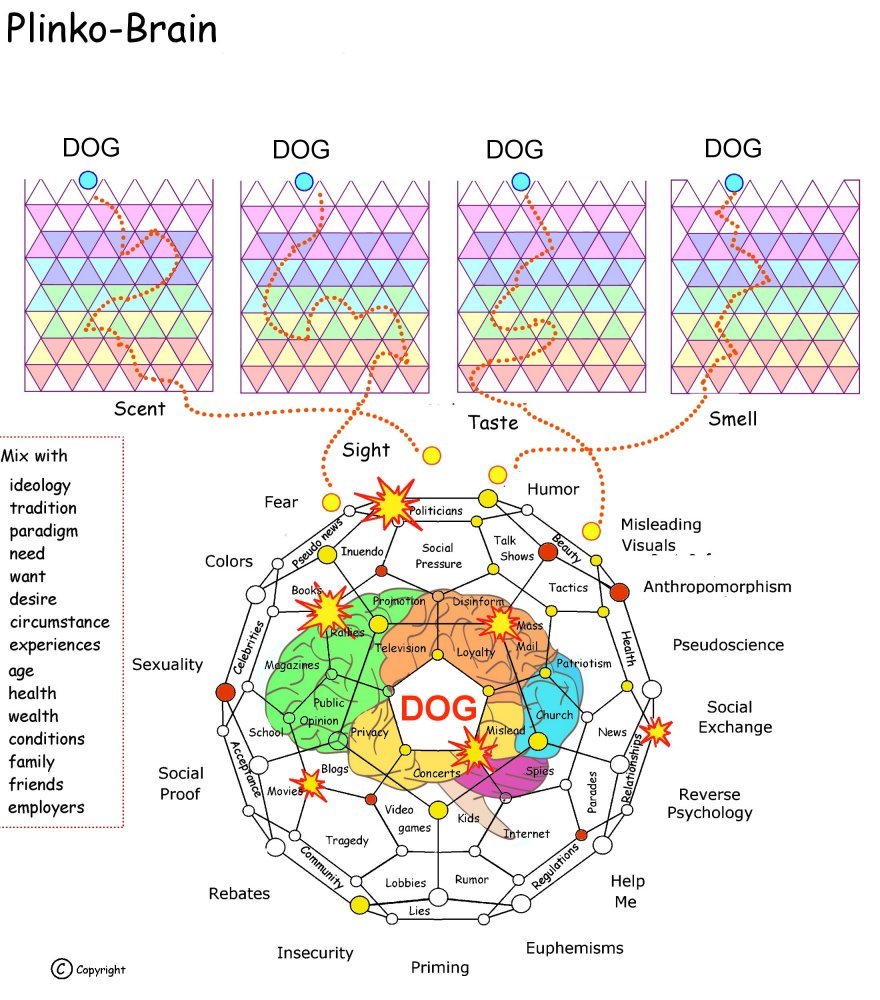
Suddenly the question “What is the Meaning of the Word Dog” appears arduous and complicated, but remember, this all takes place in a nano-second.
Childs play for the average brain.
When we see the results of the blue and white cards we automatically think of further descriptions of what the meaning of dog might include, which should provide adequate data for the group consensus.
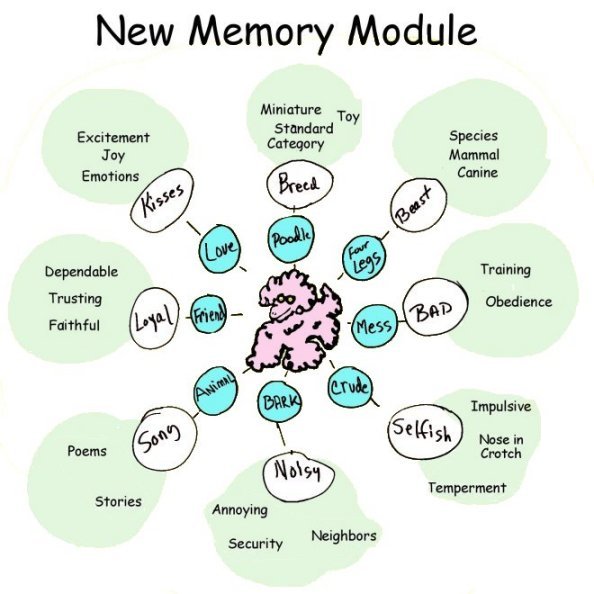
The new memory module for the brain to incorporate includes the input of 7 other individuals and will continue to expand inside your mind as time goes by as new and different information is accumulated.
Our favorite breed of dog is the poodle. This is our contribution to the game.
What is the Meaning of the Word Dog?
| Blue Card | White Card | Out of Your Mind |
|---|---|---|
| Poodle
Love Friend 4 Legs Animal Bark Crude Mess |
Noisy
Song Loyal Kisses Breed Beast Bad Selfish |
Species, Mammal, Canine
Training, Obedience Impulsive, Nose in Crotch, Temperment Neighbors, Annoying, Security Poems, Stories Dependable, Trusting, Playful Excitement, Joy, Emotions Miniature, toy, standard sizes |
In this manner we come to a general consensus of what the meaning of the word Dog might mean without having to get into the weeds of specifics.
The End.
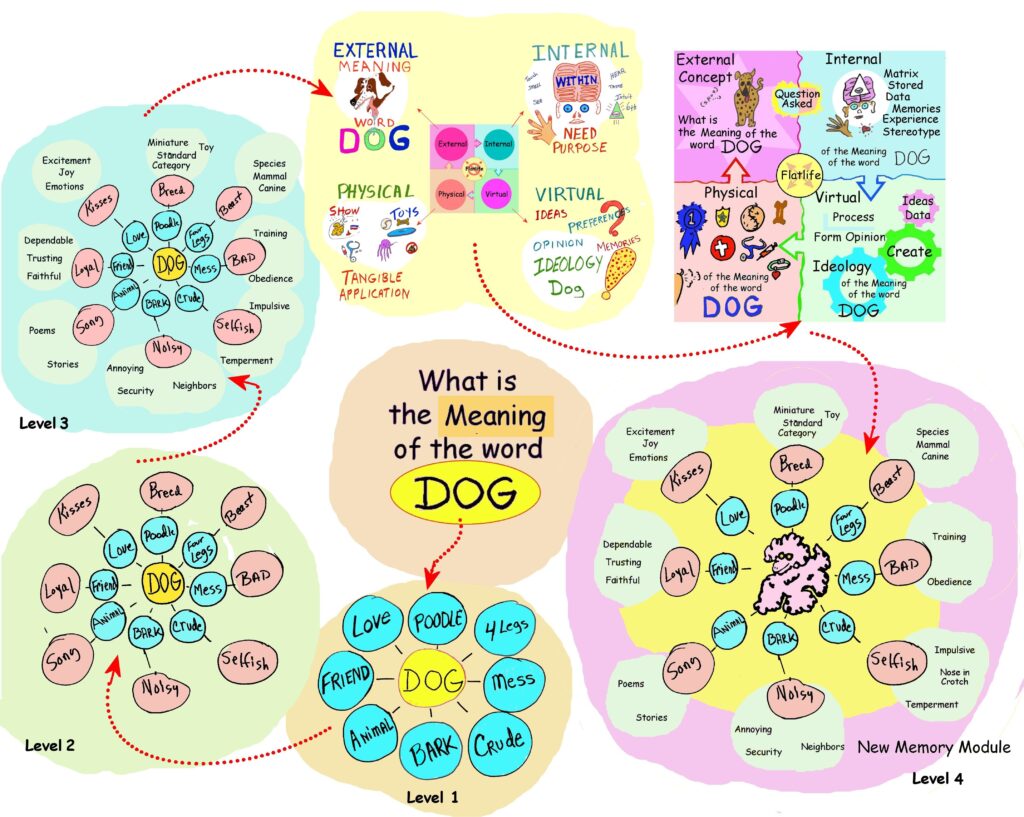
How The Game Of ‘Plinko’ Perfectly Illustrates Chaos Theory

